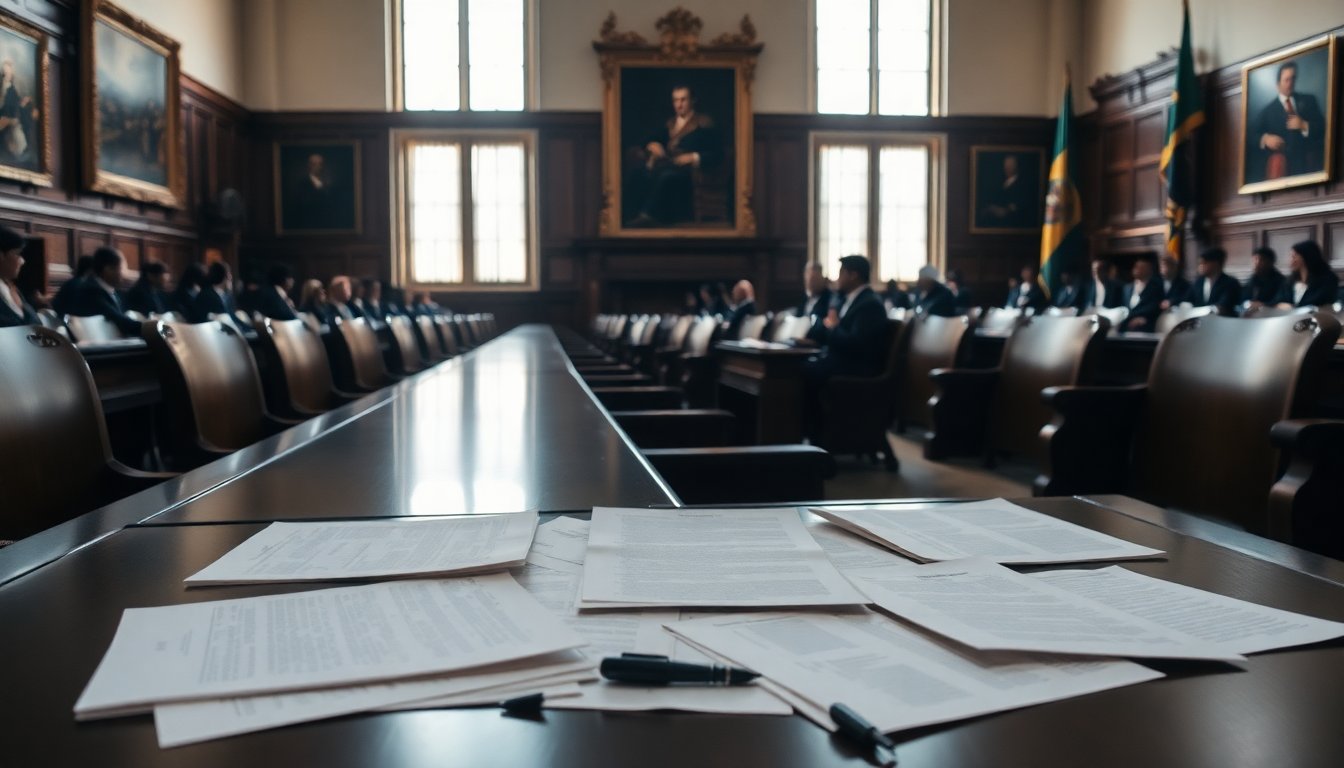Table of Contents
The recent conviction of former Brazilian President Jair Bolsonaro has significantly impacted Brazil’s political landscape. Found guilty of attempting a coup to maintain power after his electoral defeat in 2022, Bolsonaro faces a sentence of over 27 years in prison. This unprecedented ruling represents a critical legal milestone and raises questions about the future of Brazilian democracy and the existing divisions within the nation.
Judicial Proceedings and Their Outcomes
On a pivotal Thursday, a five-member panel of Supreme Court justices delivered their verdict against Bolsonaro, with four justices voting for the conviction. Justice Luiz Fux was the sole dissenter, arguing that the evidence presented was inadequate to support the coup allegations. The court traced Bolsonaro’s alleged coup attempt back to 2021 when he began to undermine the integrity of Brazil’s electronic voting system. Following his electoral defeat to Luiz Inácio Lula da Silva, Bolsonaro’s actions escalated, culminating in an alleged conspiracy involving military leaders and even assassination plots.
The events of January 8, 2023, when Bolsonaro supporters stormed key government buildings, were cited by the court as a desperate attempt to instigate a military coup. This ruling is significant, as it not only holds Bolsonaro accountable but also establishes a legal precedent in Brazilian history, with potential implications that may resonate throughout Latin America.
Public Reactions and Societal Division
In Rio de Janeiro, public sentiment is sharply divided. Many Bolsonaro supporters voiced their outrage, claiming that the legal proceedings were politically motivated. Various citizens expressed deep-rooted frustration with the current political climate, perceiving the conviction as a calculated move by the left to eliminate a formidable political adversary. Conversely, others celebrate the ruling as a long-awaited justice for perceived mismanagement during Bolsonaro’s presidency, especially regarding the COVID-19 pandemic.
Perspectives range from indignation at what some view as a flawed judicial process to relief and a sense of vindication for the victims of Bolsonaro’s policies. These emotional responses illustrate the polarized nature of Brazilian society, with many citizens expressing skepticism about the integrity of the political system.
Future Implications for Brazil’s Political Climate
The ruling raises significant questions about Brazil’s political trajectory. With Bolsonaro’s conviction, concerns have emerged regarding potential unrest and violence from his supporters. This fear is not unfounded, as thousands rallied before the court’s deliberation, highlighting the potential for discord following any decision perceived as unfavorable to Bolsonaro’s faction.
International relations may also be negatively impacted by this ruling. The United States, under the recent administration, had already adopted a hard stance against Bolsonaro, imposing tariffs in response to perceived injustices. Following the conviction, U.S. officials indicated a readiness to respond further, complicating diplomatic ties between the two nations.
As Brazil navigates the aftermath of this landmark verdict, the public’s hopes for change are tempered by an awareness of the challenges ahead. Citizens are seeking transparency and accountability, aspiring for a political landscape that prioritizes the nation’s future over partisan interests.
Conclusion: A Pivotal Moment for Brazil
The conviction of Jair Bolsonaro marks a pivotal moment in Brazilian politics, being the first instance of a former president sentenced for attempting to undermine democratic processes. As the nation grapples with the ramifications of this ruling, the path forward remains uncertain. The societal divide, coupled with international pressures, presents a complex scenario for Brazil’s future. Ultimately, hope rests in the resilience of its democracy and the collective will of its citizens to demand accountability and integrity in governance.


